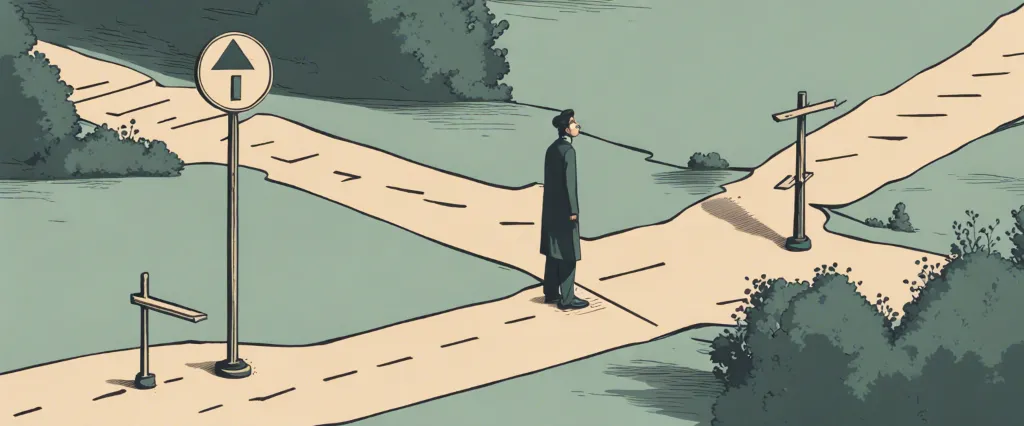
In the world of self-help literature, a vast array of books promises to guide individuals on their journey to personal growth and fulfillment. Amidst this sea of guidance, two highly acclaimed works have garnered significant attention: Emotional First Aid by Guy Winch and The 5 AM Club by Robin Sharma. Both books offer unique perspectives on overcoming obstacles and achieving personal success, but they differ greatly in terms of approach and focus.
Emotional First Aid by Guy Winch shines a light on the often-neglected aspect of emotional well-being. Drawing from his experience as a licensed psychologist, Winch delves deep into the intricacies of emotional wounds and outlines practical strategies to navigate and heal them. On the other hand, The 5 AM Club by Robin Sharma explores the potential of optimizing productivity and personal fulfillment by embracing the transformative power of the early morning hours. Sharma argues that waking up at 5 AM allows individuals to access their fullest potential and design a life of purpose and intention.
Although both books aspire to guide readers towards personal growth, the underlying philosophies and strategies they present are fundamentally distinct. While Emotional First Aid focuses on emotional healing and resilience, The 5 AM Club emphasizes productivity and self-mastery. By comparing and contrasting these two works, we hope to glean valuable insights into the diverse methodologies individuals can employ to navigate the complex landscape of personal growth and self-improvement.
This comparative study will delve into the core concepts of Emotional First Aid and The 5 AM Club, exploring their respective approaches, theories, and the practical tools they offer. By critically analyzing the strengths and limitations of each text, we aim to present a comprehensive evaluation of their potential impacts on readers’ lives.
Furthermore, by highlighting the areas of convergence and divergence between these two works, we intend to create a comprehensive framework that synthesizes the various aspects of personal growth covered by Emotional First Aid and The 5 AM Club. By studying these texts side by side, readers will gain a richer understanding of the diverse factors that contribute to personal well-being and success.
Ultimately, the goal of this comparative study is to equip readers with a nuanced understanding of the strategies and practices outlined in Emotional First Aid and The 5 AM Club. Through this exploration, we hope to help individuals make informed decisions about which path may best align with their personal goals and aspirations for self-improvement.
As we embark on this journey to unravel the core philosophies of Emotional First Aid and The 5 AM Club, let us commence this exploration of personal growth, emotional healing, and self-mastery.
Brief Summary of Two Books
Emotional First Aid by Guy Winch
Emotional First Aid” by Guy Winch is a self-help book that offers practical strategies to heal emotional injuries and maintain psychological well-being. The author emphasizes the importance of addressing emotional pain with the same urgency and care as physical injuries, and provides readers with a guide to recognizing and treating common emotional wounds.
The book is divided into seven sections, with each section addressing a specific emotional issue. Throughout the book, Winch draws on scientific research, clinical insights, and personal anecdotes to provide evidence-based strategies for emotional healing. He explores topics such as rejection, loneliness, guilt, rumination, failure, and low self-esteem, offering readers practical techniques to overcome these emotional challenges.
A key aspect of Winch’s approach is empowering readers to take action and actively work towards their emotional well-being. He provides step-by-step strategies and exercises that readers can implement in their daily lives to address emotional injuries and prevent further harm. The book also emphasizes the importance of self-compassion and self-care, as well as seeking professional help when needed.
Overall, “Emotional First Aid” aims to equip readers with the tools and knowledge to navigate emotional injuries and build emotional resilience. It offers practical advice and actionable strategies to heal emotional wounds, so readers can lead healthier and more fulfilling lives.
The 5 AM Club by Robin Sharma
The 5 AM Club” by Robin Sharma is a self-help book that focuses on personal development and productivity. The story revolves around four main characters: a billionaire entrepreneur, an artist, a successful businesswoman, and a struggling artist. Each character undergoes a life transformation through the teachings of a quirky yet wise mentor known as the Spellbinder.
The core principle of the book is the concept of waking up at 5 AM every day, which is believed to be the time when the mind is most productive and creative. The mentor guides the characters on how to structure their mornings with the “20/20/20 Formula” comprising of exercise, reflection, and growth.
Throughout the book, Sharma provides practical tips and strategies to enhance productivity, improve focus, and cultivate a positive mindset. He emphasizes the importance of creating daily rituals, setting goals, and embracing continuous learning. The characters learn to overcome their fears, embrace discipline, and unleash their true potential.
Drawing inspiration from various disciplines such as neuroscience, psychology, and ancient philosophy, Sharma offers a holistic approach to personal and professional growth. The book encourages readers to develop a morning routine that nourishes the mind, body, and spirit, leading to increased success and fulfillment in all areas of life.
Overall, “The 5 AM Club” is a motivational guide urging readers to embrace early rising, establish healthy habits, and achieve extraordinary results by investing in personal growth and mastery.
Comparison between Two Books

Similarities in self help
Both “Emotional First Aid” by Guy Winch and “The 5 AM Club” by Robin Sharma are self-help books that offer advice and guidance for personal growth and improvement. Despite addressing different aspects of personal development, they share some similarities in terms of their approach to self-help.
1. Focus on Emotional Well-being: Both books acknowledge the importance of emotional well-being. Guy Winch emphasizes the need to address emotional wounds and gives practical strategies to recover from psychological injuries, such as rejection, failure, or guilt. Robin Sharma, on the other hand, emphasizes the significance of starting the day with a positive mindset to enhance overall emotional health and productivity.
2. Practical Techniques: Both authors provide practical techniques and exercises for readers to implement in their daily lives. Whether it’s Winch suggesting specific steps to counter common emotional pitfalls or Sharma recommending daily rituals like the “20/20/20 Formula,” both books aim to provide actionable strategies that readers can easily integrate into their routines.
3. Mindfulness and Self-reflection: Mindfulness and self-reflection are key components of the self-help approaches in these books. Winch encourages readers to become more self-aware of their emotional states and helps them develop techniques to deal with negative thoughts and emotions. Sharma highlights the importance of reflecting on one’s inner self and encourages mindfulness practices like meditation and journaling.
4. Importance of Routine and Discipline: Both books stress the significance of establishing routines and practicing discipline. Winch emphasizes the need for self-discipline in addressing emotional wounds and encourages readers to follow a structured healing process. Similarly, Sharma puts great emphasis on the power of waking up early and sticking to a morning routine, as a means to achieve personal transformation and success.
5. Positive Mindset: Both authors advocate for cultivating a positive mindset to improve one’s well-being. While Winch tackles emotional wounds and negative emotions, his ultimate goal is to help readers shift towards a positive and resilient mindset. Sharma, on the other hand, promotes positive thinking and gratitude as essential elements for personal growth and success.
In conclusion, although “Emotional First Aid” and “The 5 AM Club” focus on different aspects of self-help, they both share common themes such as the importance of emotional well-being, practical techniques, mindfulness and self-reflection, discipline and routine, and cultivating a positive mindset. These similarities highlight the fundamental principles of self-help that aim to enhance personal growth and well-being.
Divergences in self help
Emotional First Aid by Guy Winch and The 5 AM Club by Robin Sharma are two popular self-help books that aim to provide guidance and strategies for personal growth and well-being. While both books share the common goal of helping individuals improve themselves, they approach the subject matter from different angles, which leads to some notable divergences in their content and focus.
Emotional First Aid by Guy Winch focuses on the importance of emotional well-being and provides practical advice on how to tend to our psychological wounds. The book emphasizes the significance of taking care of our mental health and offers strategies for dealing with various emotional injuries, such as rejection, failure, and guilt. Winch advocates for the importance of understanding and addressing emotional pain to prevent it from accumulating and negatively impacting one’s overall well-being. The book emphasizes the need for self-compassion, self-care, and seeking professional help when necessary.
On the other hand, The 5 AM Club by Robin Sharma takes a holistic approach to personal development and emphasizes the significance of starting each day with intention and discipline. The book suggests waking up at 5 am as a means to optimize productivity, gain clarity, and cultivate positive habits. Sharma combines elements of psychology, spirituality, and practical advice to guide readers towards achieving peak performance and living a fulfilling life. This book focuses on various strategies like practicing gratitude, exercise, meditation, and learning to manage time effectively.
One key divergence between these two self-help books lies in their primary focus areas. While Emotional First Aid primarily addresses emotional well-being and offers specific tools to heal emotional wounds, The 5 AM Club addresses self-improvement from a broader perspective, encompassing various aspects of personal growth, productivity, and overall lifestyle enhancement.
Additionally, the nature of the content differs in terms of approach. Emotional First Aid delves deeper into emotional pain, trauma, and psychological healing, while The 5 AM Club provides a more general recipe for success and personal transformation, focusing on productivity, discipline, and habits that can lead to a better life.
It’s important to note that both books have their merits and may cater to different individuals with varying needs. Emotional First Aid appeals more to those who seek to address and heal emotional wounds, while The 5 AM Club may be more suitable for those looking for guidance on broader personal development.
In conclusion, Emotional First Aid by Guy Winch and The 5 AM Club by Robin Sharma offer distinct perspectives on self-help and personal growth. While Emotional First Aid focuses on emotional healing and well-being, The 5 AM Club encompasses a wider range of topics related to self-improvement and achieving success. The choice between these two books ultimately depends on the specific goals and needs of the reader.

Conclusion
It ultimately depends on your personal preferences and what you are looking for in a book.
“Emotional First Aid” by Guy Winch focuses on emotional well-being and provides practical strategies for dealing with emotional injuries such as rejection, failure, and loss. It offers advice on how to heal and build resilience, making it a valuable resource for anyone looking to improve their emotional health.
On the other hand, “The 5 AM Club” by Robin Sharma focuses on personal development and productivity. It explores the concept of waking up early and how it can transform your life by implementing certain routines and habits. It provides insights and actionable steps to maximize productivity and achieve success.
If you are more interested in understanding and managing your emotions, then “Emotional First Aid” would be more worthy of reading. However, if personal growth and productivity are your priorities, then “The 5 AM Club” may be the better choice.



